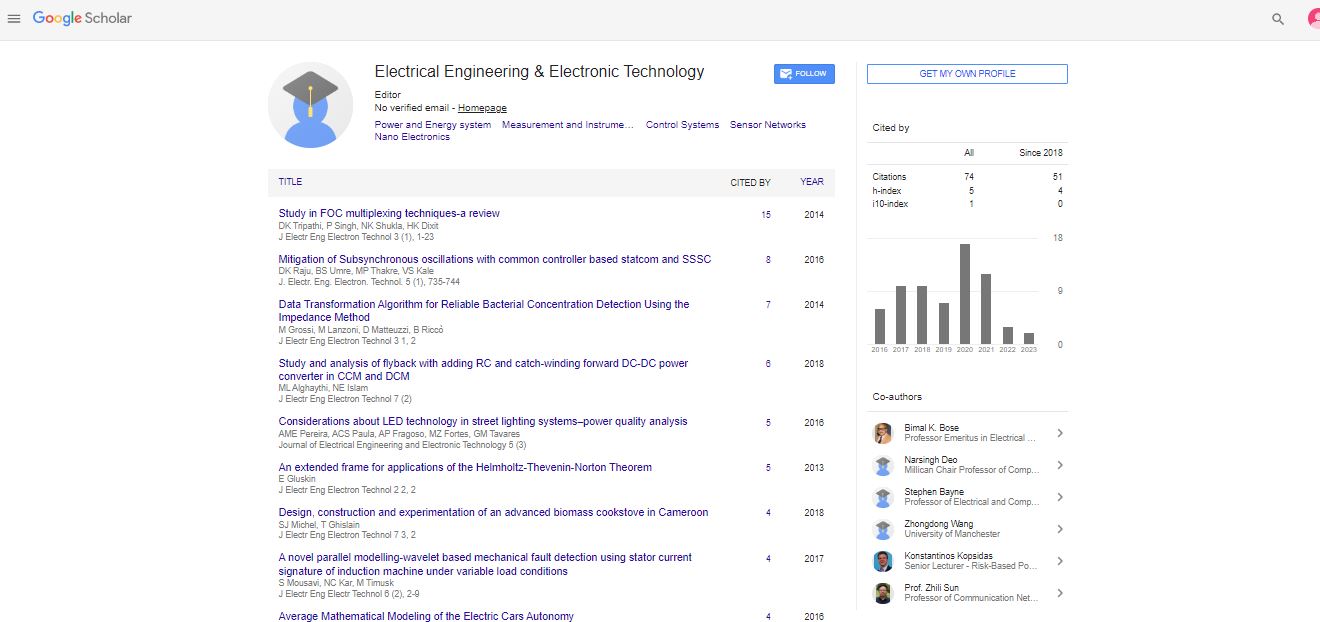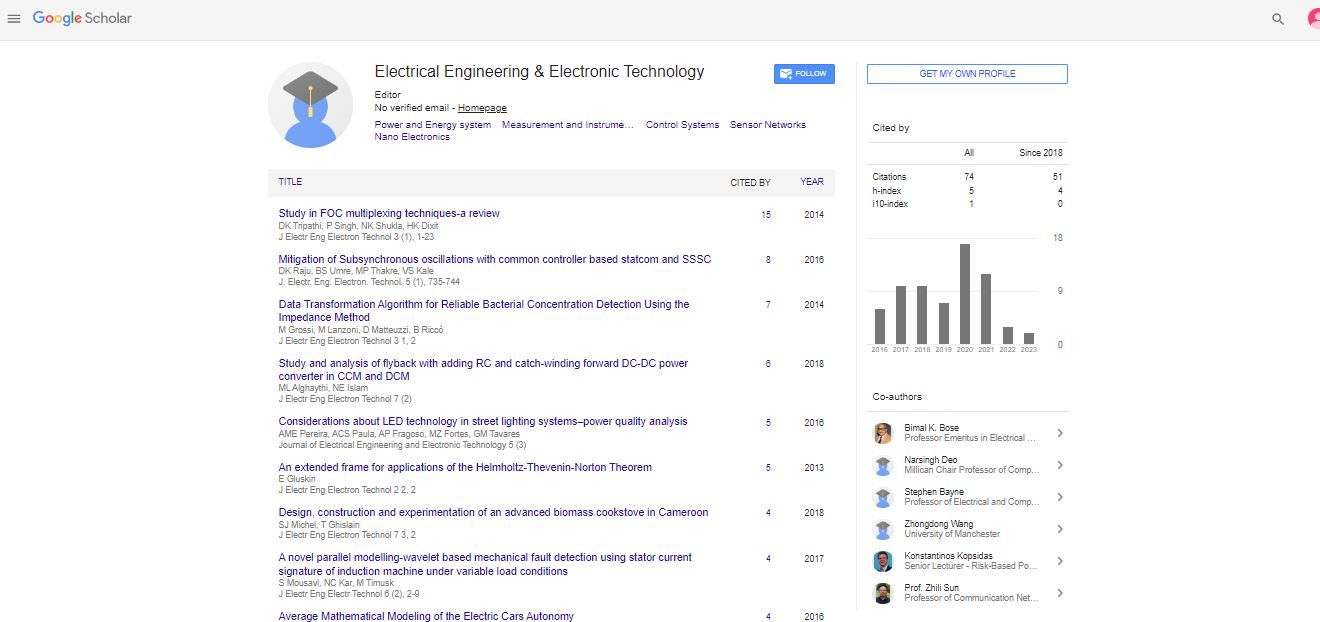A facile, colorimetric assay for DPP IV activity and inhibition based on an enzyme responsive nanoparticle system
Hasan Aldewachi, N Woodroofe and P Gardiner
University of Connecticut, USA
: J Electr Eng Electron Technol
Abstract
Diabetes mellitus is a chronic metabolic disorder caused due to lack of insulin production by pancreatic islet cells (Type I) or underutilization of insulin produced in the pancreas (Type II). Complications arising due to this disease can be minimized by vigilant monitoring of blood glucose levels. In this study, a fluorescent enzymatic hydrogel was designed for rapid glucose detection. The formation of glucose-responsive hydrogen was realized using crosslinking of functional poly (ethylene glycol), protein, glucose oxidase (GOx) and Coumarin-NH2 , in which GOx serves as glucose-recognition element and pH-sensitive Coumarin-NH2 as a fluorescence “turn-on†reporter. Thermal and mechanical properties of the hydrogel scaffold with and without sensing elements were systematically analyzed. Especially the compression analysis of the fluorescent hydrogel shows high elasticity with good mechanical strength. The as-developed fluorescent hydrogel shows fast response time, good sensitivity and good reproducibility at physiological pH upon the addition of glucose. The glucose sensing mechanism was relied on that GOx takes glucose as substrate to liberate proton, which results in the fluorescence “turn-on†of pH-sensitive Courmarin-NH2 covalently immobilized in the hydrogel. The developed fluorescence hydrogel holds great promise as an injectable glucose biosensor for in-vivo continuous glucose monitoring.
Biography
Yu Lei is a Castleman Associate Professor of Chemical and Biomolecular Engineering and Biomedical Engineering at the University of Connecticut, USA. He obtained his PhD degree in 2004 at the University of California-Riverside in Chemical and Environmental Engineering. His current research combines biotechnology, nanotechnology, and sensing technology, especially as applied to the development of gas sensors, electrochemical sensors, and biosensors.
 Spanish
Spanish  Chinese
Chinese  Russian
Russian  German
German  French
French  Japanese
Japanese  Portuguese
Portuguese  Hindi
Hindi 
